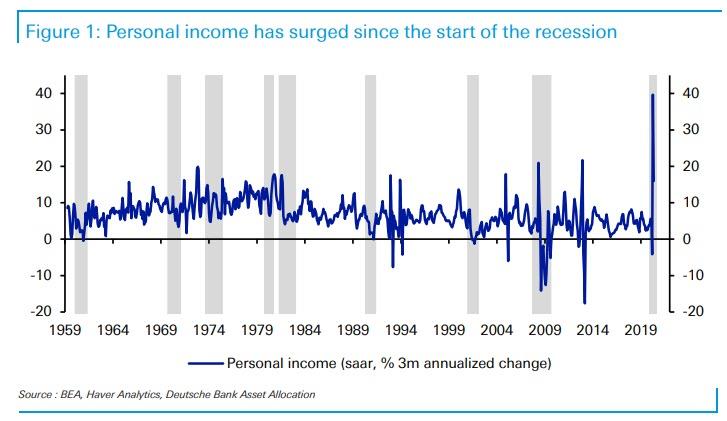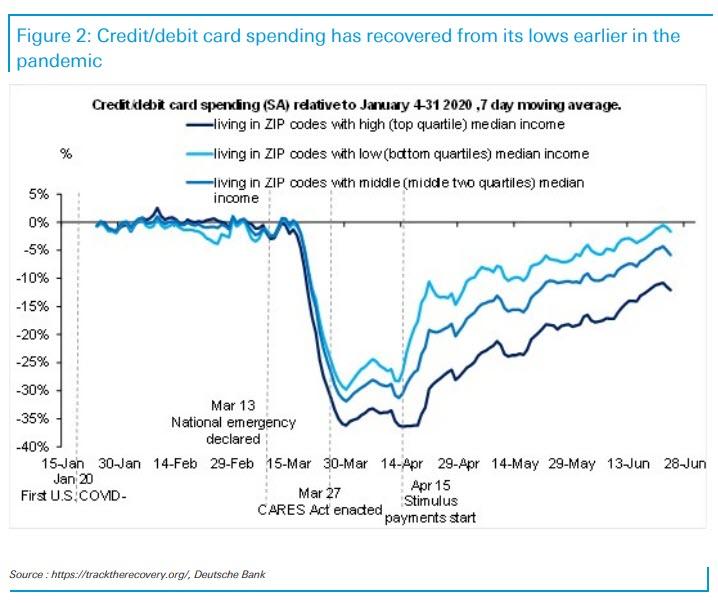The Strangest Recession In History
Tyler Durden
Thu, 07/09/2020 – 16:21
“Recessions don’t usually result in personal income soaring, but this one has thanks to government support around the world” Deutsche Bank’s Jim Reid writes bringing attention to the following chart.
However, as discussed extensively last month in “‘Look Out Below’: Why The Economy Is About To Fly Off A Fiscal Cliff“, the US soon faces a potential “benefits cliff” and this could be one of the defining events for global markets this summer. The $600 per week in Federal Pandemic Unemployment Compensation (FPUC) is set to expire at the end of July, while the Pandemic Emergency Unemployment Compensation (PEUC) and Pandemic Unemployment Assistance (PUA) will also expire at the end of this year.
Though Wall Street economists expect Congress to pass further stimulus in late July to address these cliffs, the two parties remain far apart on the contours of the next phase of federal support. On a per capita basis, claimants have received roughly $788/week ($41k annualised) on average, well above the usual amount of roughly $300 in a normal labor environment ($15-$16k annualised).
This is important because as the second chart illustrates, consumer spending for the bottom income quartile has held up relatively well up to this point.
So, as Jim Reid concludes “an important few weeks ahead in DC” where the ability to keep helicopter money flying will be strongly tested in coming days, with Politico reporting that Speaker Nancy Pelosi on Thursday rejected the Trump administration’s calls to limit the next coronavirus relief package to $1 trillion, arguing that Congress will need to approve at least double that amount amid a surge in cases.
“A trillion dollars is OK, that’s an interesting starting point. But that doesn’t come anywhere near,” Pelosi said at her news conference.
As the article further notes, Congressional leaders, including Pelosi, are in the early stages of drafting a fifth mammoth aid bill to stave off a total collapse of the U.S. economy while infusing cash in health efforts to control the coronavirus pandemic. But Democratic and Republican leaders remain fiercely at odds over the size and scope of the package, raising questions about Washington’s ability to get it done in the next three weeks.
In other words, if Congress fails to reach a bipartisan agreement on another stimulus deal, the deferred economic collapse may hit as soon as August 1.
via ZeroHedge News https://ift.tt/322oRL6 Tyler Durden

